Cover Photo - AllSaints Cathedral, Nakasero | 2018 | Photographed by twinomugisha
Writing about “church hate” can feel like crossing a line, like you’re turning your back on God. But the truth is, my frustration isn’t with God. It’s with the institution, the processes, and the harmful dynamics I experienced firsthand. We’ve come to equate the church with God’s home, but scripture tells us that God resides within us, that we are the temple, and we are the church. My own journey led me to question what the church had become, especially in how it treated individuals who were serving with so much passion.
1 Corinthians 3:16-17
“Don’t you know that you yourselves are God’s temple and that God’s Spirit dwells in your midst? If anyone destroys God’s temple, God will destroy that person; for God’s temple is sacred, and you together are that temple.”
Acts 17:24-25
“The God who made the world and everything in it is the Lord of heaven and earth and does not live in temples built by human hands. And he is not served by human hands, as if he needed anything. Rather, he himself gives everyone life and breath and everything else.”
I didn’t start out with these questions. I began as a young, wide-eyed creative in church, mentored by someone I still respect for opening doors to the creative space. I had been on track to become an engineer, but life threw me into a creative community in the church’s media department. At first, it was poetry that drew me in, but soon enough, I found myself behind the camera more than behind the pen, passionate about photography, cinematography, and media.








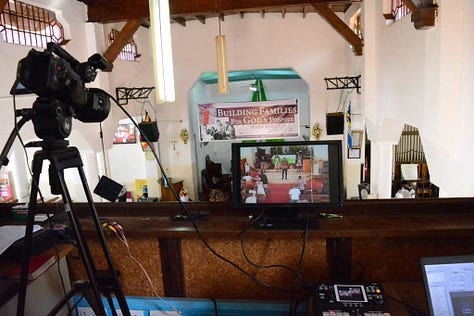
Passion—that was the driving force for all of us. We were a group of young people, eager to serve, spending countless hours in the media department, contributing to the church’s creative output. Most of my colleagues are now influencers and trendsetters in the media industry, but back then, we were just a bunch of “passionate kids.” And the church took note of that passion, but instead of nurturing it, they exploited it. We were young and naive, eager to serve, not realizing that our dedication was being taken advantage of.
1 Peter 5:2-3
“Be shepherds of God’s flock that is under your care, watching over them—not because you must, but because you are willing, as God wants you to be; not pursuing dishonest gain, but eager to serve; not lording it over those entrusted to you, but being examples to the flock.”
Over time, I started to see the cracks. I began to notice how certain individuals in positions of power were using their authority to manipulate, to exploit. It became clear that this wasn’t just an issue of human imperfection—it was abuse. Specifically, one leader used his position to sexually exploit young women in the church, manipulating them emotionally and spiritually. Victims were often made to feel like they were complicit, like they were the ones who had something to be ashamed of. They feared speaking up because the narrative would always be, “Why were you in his DMs? Why did you let him into your hostel?”
Matthew 23:27-28
“Woe to you, teachers of the law and Pharisees, you hypocrites! You are like whitewashed tombs, which look beautiful on the outside but on the inside are full of the bones of the dead and everything unclean. In the same way, on the outside you appear to people as righteous but on the inside you are full of hypocrisy and wickedness.”
It’s a twisted culture of victim-blaming, rooted in the misuse of power. This abuse didn’t just cause a few people to leave the church—it caused people to lose faith in the church altogether. And when they did, they were met with the same tired excuse: “No one is perfect.” But here’s the thing—being imperfect doesn't give anyone the right to exploit others. The Bible teaches us that when someone in the church sins, we are to hold them accountable. If they refuse to change, they are to be removed from positions of power. Yet, what I saw was leaders who were allowed to remain in power, protected by the church’s bureaucracy and the misguided belief that forgiveness means tolerance. Forgiving someone doesn’t mean allowing them to continue abusing their position.
Matthew 18:15-17
“If your brother or sister sins, go and point out their fault, just between the two of you. If they listen to you, you have won them over. But if they will not listen, take one or two others along, so that ‘every matter may be established by the testimony of two or three witnesses.’ If they still refuse to listen, tell it to the church; and if they refuse to listen even to the church, treat them as you would a pagan or a tax collector.”
1 Timothy 5:19-20
“Do not entertain an accusation against an elder unless it is brought by two or three witnesses. But those elders who are sinning you are to reprove before everyone, so that the others may take warning.”
Ephesians 5:11
“Have nothing to do with the fruitless deeds of darkness, but rather expose them.”
The sexual exploitation I witnessed wasn’t the only thing that led to my resentment. Church politics played a massive role too. There was a constant battle between the older generation and the youth. The elders in the church were always quick to find fault in what the youth did—whether it was the way we dressed, the way we conducted services, or the way we expressed our faith. There was no room for open dialogue, no space for collaboration between generations. The separation between the elders and the youth was so deep that it created an unhealthy, negative environment, pushing many of us further away.
1 Timothy 4:12
“Don’t let anyone look down on you because you are young, but set an example for the believers in speech, in conduct, in love, in faith and in purity.”
1 Peter 5:5
“In the same way, you who are younger, submit yourselves to your elders. All of you clothe yourselves with humility toward one another, because, ‘God opposes the proud but shows favor to the humble.’”
And then, there’s the issue of purpose. For years, I worked in the church media department, volunteering my time and talent, creating content that helped drive engagement, attendance, and even donations. Yet, despite our contribution, we were never empowered to turn our creative passion into a sustainable purpose. The church would rather hire external creatives—people who weren’t part of the congregation and pay them handsomely—while we, the dedicated members, were left to struggle.
Colossians 3:23-24
“Whatever you do, work at it with all your heart, as working for the Lord, not for human masters, since you know that you will receive an inheritance from the Lord as a reward. It is the Lord Christ you are serving.”
It’s frustrating because the church could do so much more to help creatives like me turn our passion into a career. Instead, we’re told, “The pulpit isn’t for business.” But what is the good news if we can’t apply it to our daily lives? Christians are called to be wise, and part of that wisdom is learning how to thrive in the world we live in, even if we’re not “of the world.” Things like invoicing, pricing, and pitching clients aren’t unchristian—they’re necessary skills for anyone trying to build a career. Yet, instead of supporting creatives in developing these skills, the church often undermines us, leaving us questioning whether the church is the right place for us at all.
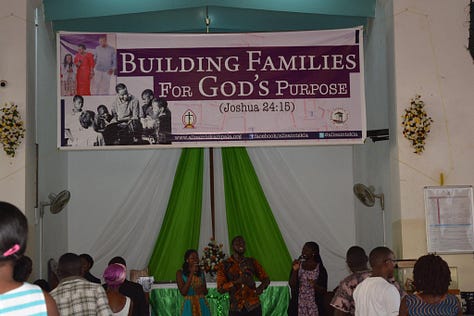
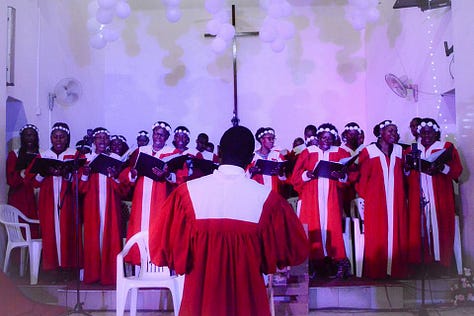

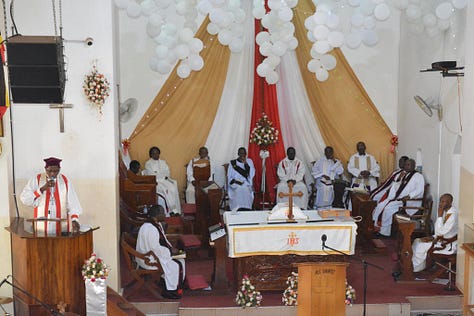



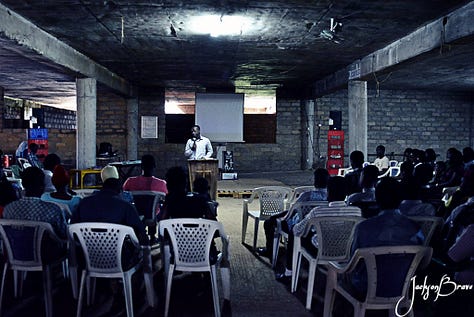

Another thing that pushed me away was the favoritism and politics within the church’s financial system. The church elders would always seem to favor external businesses when they needed work done—whether it was hiring a videographer for a special service, producing content for a campaign, or even purchasing supplies for an event. All the while, young people like us, who were volunteering our time, talent, and effort, were never considered for these opportunities. The church preferred to look outside instead of empowering us, their own.
I could go on about the many reasons why people, including myself, grow resentful toward the church. For me, it’s the abuse, the bureaucracy, the hypocrisy, and the failure to empower young people, especially creatives, to turn their passion into a purpose. And so, this resentment builds—not toward God, but toward the institution that was supposed to nurture us, support us, and guide us.
Where does your church hate come from?
That’s the question I now pose to anyone reading this. Have you ever felt like the institution that was meant to uplift you ended up hurting you instead? Have you experienced exploitation, hypocrisy, or judgment in the church? If so, what can we do about it? These are the hard conversations we need to start having—because until we do, nothing will change.



The reality is that church hurt and church hate are often born from betrayal and broken trust. People like me, who started out full of passion and faith, can’t help but feel disillusioned when the very system that we believed in takes advantage of us. But this conversation needs to go beyond just venting our frustrations. We need to ask deeper questions about how we can change the system—how we can hold leaders accountable, empower the youth, and ensure that the church remains a place of healing, growth, and service.
So, I invite others to have this conversation with me. Where does your church hate come from? How do we address it, and how do we create spaces where people can heal, grow, and thrive without feeling exploited, betrayed, or abandoned by the very place meant to protect them?
Next Time on the Blog: Marriage and the Church – A Failed Institution?
In the next blog, I’ll be diving into the controversial topic of church marriages and why they’re losing credibility, especially among young people. Church weddings, once revered, no longer inspire the same admiration. Many young churchgoers are disillusioned, watching as the very leaders who should be setting the example fail to uphold the sanctity of marriage. Worse still, some married church leaders are involved in cases of sexual exploitation within the congregation, and the church, instead of confronting these crimes, opts to silence the victims—protecting marriages over justice.
We’ll also explore why, in the church’s eyes, leadership often seems reserved for those who are married, regardless of their wisdom or capability to lead. Is being married truly a requirement for leadership, or has the church misinterpreted God’s will on this? Does marriage automatically make someone more respected or wise in the eyes of the church community? And what happens when the people given power simply because they’re married aren’t fit to lead? These are the hard questions we need to address. Stay tuned!




Church Hate came after a number of eye-openers like the above mentioned by you and one more important issue,the need to seek knowledge for self beyond what was being fed to me. My different approach of Questioning didn't please elders since they really failed to give me convincing answers. They ended up judging and tagging me names of all sorts that gave me final red flags to flee from religious institutions